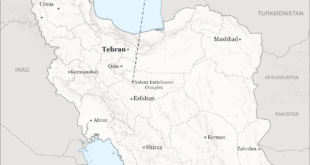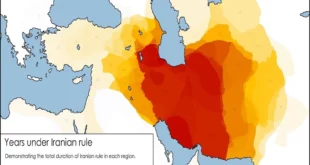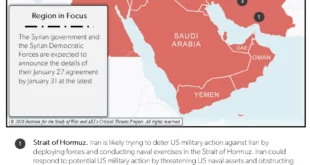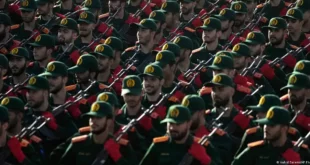WASHINGTON (AFP) — An internal debate is under way in the administration of US President George W. Bush on whether the current diplomatic approach towards Iran has any hope of halting the country’s nuclear programme, The New York Times reported on its website Friday.Citing unnamed senior administration officials, the newspaper said the debate has pitted Secretary of State Condoleezza Rice and her deputies against the few remaining hawks inside the administration, especially those in the office of Vice President Richard Cheney.
Cheney’s aides are pressing for greater consideration of military strikes against Iranian nuclear facilities, the report said.
One year ago, Rice spokes in favour of the United States joining forces with Europe, Russia and China to press Iran to suspend its uranium enrichment activities.
But since then, Iran has installed more than a thousand centrifuges to enrich uranium, and the International Atomic Energy Agency predicted that 8,000 or so could be spinning by the end of the year.
Those numbers are at the core of the debate over whether Bush should warn Iran’s leaders that he will not allow them to get beyond some yet-undefined milestones, leaving the implication that a military strike on the country’s facilities is still an option, the paper said.
Friends and associates of Rice say she has increasingly moved towards the European position that the diplomatic path she has laid out is the only real option for Bush, The Times said. But conservatives inside the administration have continued in private to press for a tougher line, making arguments that their allies outside government are voicing publicly, the report said.
Only a few weeks ago, one of Cheney’s top aides, David Wurmser, told conservative research groups and consulting firms in Washington that Cheney believed that Rice’s diplomatic strategy was failing, and that by next spring Bush might have to decide whether to take military action, according to The Times. The issue was raised at a closed-door White House meeting recently when the departing deputy national security adviser, J. D. Crouch, told senior officials that Bush needed an assessment of how the stalemate over Iran’s nuclear programme was likely to play out over the next 18 months, The Times reported. In response, Under Secretary of State Nicholas Burns told the group that negotiations with Tehran could still be going on when Bush leaves office in January 2009, the paper said.
 Eurasia Press & News
Eurasia Press & News



